How To Choose A Web Design Company
Knowing how to choose a web design company that will support your company’s goals is a skill in itself. Building a new or custom website is a major undertaking, the importance of which cannot be overstated when it comes to digital marketing. Doing it the right way requires research, a distinct plan of action, and perhaps most importantly, the right partnerships. And while choosing a web design agency is key, the first step is to identify what you’re wanting in your new website.
As business owners, think of your website as a storefront of sorts. If your goal is to run a successful and profitable business (and why wouldn’t it be?) then you need to put forth the effort into making your “storefront” the best it can be. This means finding a well-maintained location that is easy for your customers to locate. It means making sure your shelves are organized and that your products are showcased in the best light. It means giving your customers a positive shopping experience from start to finish that entices them not only to return but to tell their friends.
Now consider your website as the digital “storefront” for your business. Building the perfect website—one that is accessible, navigable, attractive, engaging, and puts your products and services in the best possible light—is no easy (or quick) task. Sure, you can knock out a site pretty quickly and on the cheap through a DIY service, or you can have your friend’s nephew and his rudimentary knowledge of web design experiment as an after-school project. But the difference between having a website that is just “done” and a website that actually improves brand awareness, generates leads, drives sales, and puts your company on the path to success all depends on who is guiding you through the process.
This is why it is absolutely imperative that you make sure to pick the right web design agency.
Picking the right agency to partner with on your website design project is a major task within itself and not one to be taken lightly or rushed through. It’s not as simple as heading to Google, calling up the nearest agency, and writing a check. Keep in mind, the team you pick will be by your side for months to come (and in some cases, even longer) so you have to be comfortable with not only their skill set, but their strategies, processes, willingness to compromise, and their general attitudes and approaches to business. So do yourself a favor and pick the agency that can give your company the website it deserves.
But how exactly? Let’s break it down. These tips will not only help you choose the right web design agency, but they will also prevent you from choosing the wrong one.
Step 1: Do your homework
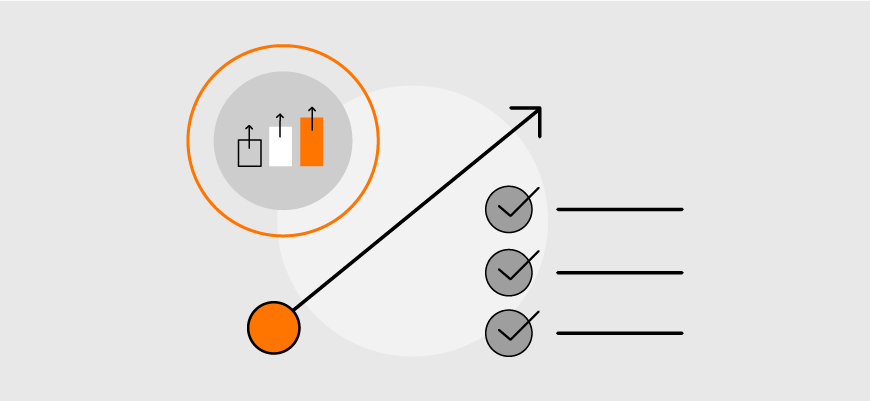
When we say “homework”, we’re not talking about researching agencies (at least not yet). You’ll want to first assemble some information about your business, industry, competitors, goals, and Key Performance Indicators. You want to be able to give the web design company you choose enough information about the ins and outs of your business. This information should contain specific data they need to know to better understand how your industry works. They need a shortlist of competitors to investigate and we might suggest coming up with a list of strengths and weaknesses each competitor brings to the table. This should also include what you like and dislike about each of their websites. Next, what are your goals for this project? Is it to generate new business, attract top talent, or improve the conversion rate? Last, what are the Key Performance Indicators (KPIs) that you will be judging the success of this project by? KPIs should be very specific data sets that you can measure. A few examples would be; did the new website increase sales from 100 leads per month to 500? Did the new website increase the conversion rate of your traffic from .015 to 5%? Did the new website rise in rankings on Google for your trophy keywords?
We highly suggest assembling this data but don’t offer it to the web design agencies you contact. Instead, make them ask for it. If they are not asking these questions, we suggest moving on because while the product they deliver might look good, there’s no way of ensuring that it’ll help you reach your goals.
Step 2: Know your budget
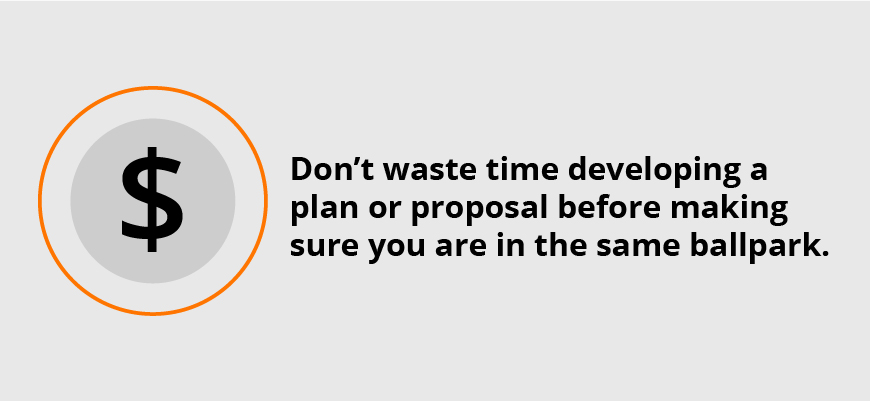
Before you ever talk with a web design agency directly, make sure to have a general idea or range of what you’re willing to spend on your website. Give yourself a little flexibility or wiggle room, but prepare a budget that is realistic for both you and the agency. If you don’t talk about this, you may end up wasting your time working with an agency to develop a plan or proposal only to find you need double of what you have budgeted. Another reason to talk about the budget is that you want the agency to bring everything they have in their arsenal to your project. If they think you have a lower budget they may hold back and only offer some of their capabilities, rather than all of their ideas.
Step 3: Know your timeline
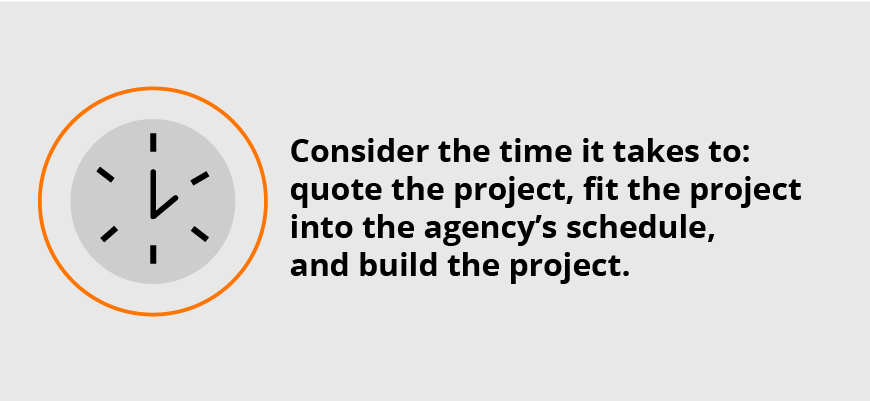
A timeline is important as well because three main things need to happen. First, you need to have time to quote the project. Next, the agency needs to get it into their project schedule. Finally, they need to build the project. If the agency can start the project at any time they are probably not in high demand. This could be a sign of poor customer service, that their projects do not achieve business goals, or that the agency is unable to maintain a strong client base.
Step 4: Select agencies to interview
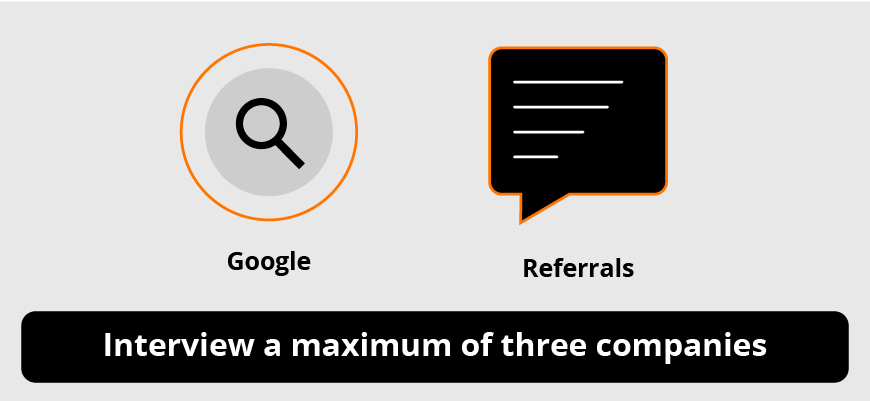
Okay, NOW it’s time to start calling. But again, you’ll drive yourself crazy if you just start calling every web design company you come across. Be a little more selective. We suggest a maximum of three companies to interview. You should be able to find a company that stands out from the three and then make your decision from there.
Google is a great place to look if ranking on search engines is one of your goals. If you want a website that ranks, it is wise to investigate some agencies that are ranking themselves.
Another good idea is to ask your network for a referral to a good web design agency. You want to be fairly specific when you ask for a referral, so instead of asking for a web designer, you will want to ask a website design company or web design agency. The reason for this is because it is impossible for one person to be able to perform the strategy, SEO, copywriting, design, and development that is needed to make your website a success. You are going to need a team of experts— not just one freelancer working out of their home— to accomplish your goals.
Most good web design companies will have a contact form on their site to get the ball rolling. When you fill this out, request that they contact you by phone. A phone call, as opposed to an email, will give you an idea of how well they communicate. If they can’t manage a phone call— or if it takes them days or weeks to even get ahold of you— it’s a clear sign their customer service standards are not ideal.
Step 5: Start interviewing
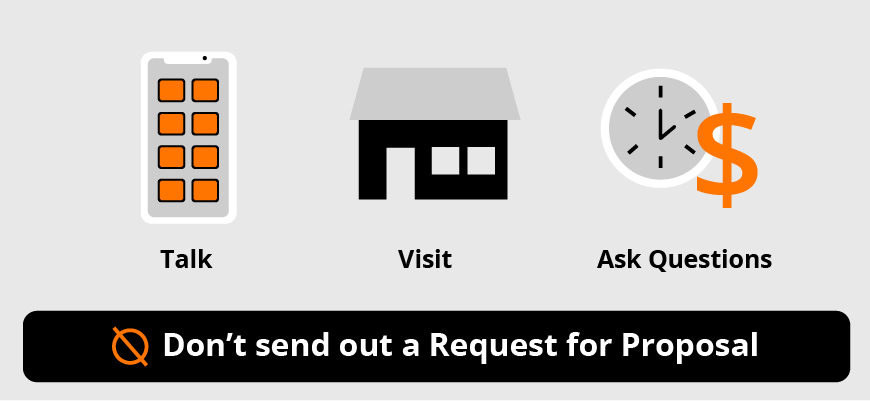
Firstly, I would not suggest sending out a Request for Proposal to the companies because that is not how a good relationship is started. If the phone conversation goes well, then set up an in-person meeting. Try to meet at their office if possible because this will give you valuable insight. It does not have to be the coolest office in the world, but it should be clean and organized and have a good vibe. If the team’s vibe does not feel right, that is a good sign the team does not work well together. It is also important that you mesh well with the company because this will become a long-term relationship and not just a one-off project.
You’ll want to come equipped with plenty of questions for the agency as far as their processes, their team, their industry-specific experience, estimated timelines, and of course, price points.
Make sure you talk about your budget range to ensure you are in the same ballpark. If you don’t talk about this, you may end up wasting your time working with an agency to develop a plan or proposal only to find you need double what you have budgeted. Another reason to talk about the budget is that you want the agency to bring everything they have in their arsenal to your project. If they think you have a lower budget, they may hold back and only offer some of their capabilities rather than all of their ideas.
Ask if they outsource their Search Engine Optimization (SEO) and PPC or do it in-house. I would not suggest choosing an agency that outsources the SEO of their website process because there are too many variables that go into SEO to make a website rank.
But beyond that, make sure to ask the agency what questions they have about your project. The main questions they ask should be about the business goals you have and not just the project goals. A “responsive website that is easy to use and update” is not a business goal, that is a project goal. Increasing your revenue from your existing customers is a business goal. So is attracting candidates in order to expand your workforce.
Step 6: Assess their approach
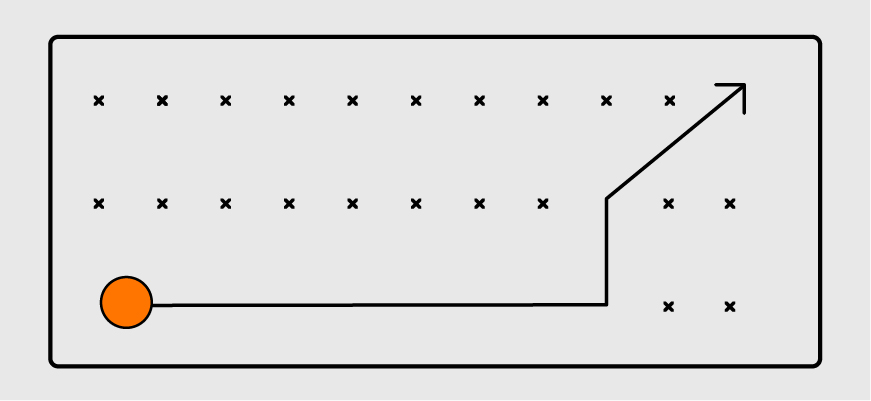
This is where you’ll really get into how the agency’s product will benefit your business. Are they going to deliver an interactive and engaging website that will help you reach your goals and generate sales? Or are they just going to give you a junk site wrapped in a pretty package? For instance, how are they handling major aspects like development and SEO? If these integral components are being outsourced, rolled into another department, or neglected altogether, it’s time to keep looking. If your website’s components are being parted out and handed off to the lowest bidder, you risk losing focus of your initial strategy and quality assurance. Your “Frankenstein” website might look good on the front end, but it will be riddled with so many backend and content management system issues that a rebuild will be inevitable.
Step 7: Assess their support
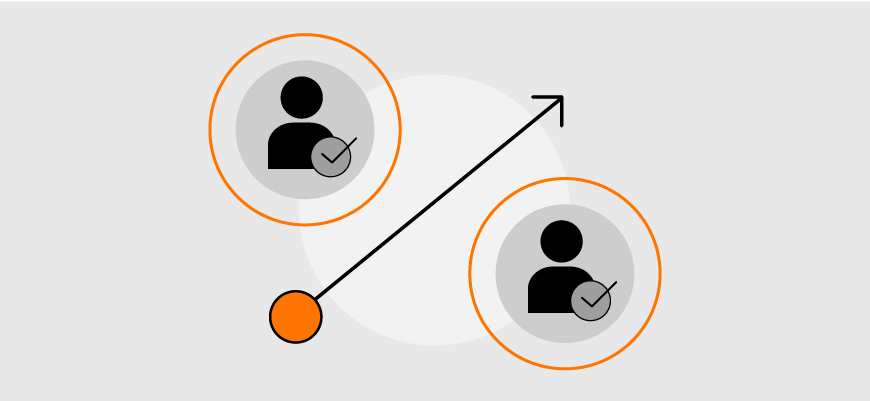
No matter which agency you choose, things are going to come up post-launch that neither you nor your agency accounted for: copy changes, new photos, CMS updates, etc. Make sure the agency you choose isn’t going to just launch your site and bid you farewell and good luck. Find an agency that will stick with you to ensure you’re getting the most out of your website and will be by your side should updates or other unforeseen aspects arise. Your agency should partner with you not only through the development and launch stages but beyond.
Conclusion
Remember: the right website will be the centerpiece of your digital marketing strategy and it’s not something you’ll want to rush through or cheap out on. Your website will likely be the first exposure to your brand, products, and services that a potential customer will ever have. You want to make the right first impression and you want your site to be alluring enough to convert leads to customers and customers to advocates. Facets such as user experience, SEO, LSO, website development, and web design all play a part in making your business stand out amongst the rest. So picking a web design agency that has the knowledge, experience, and overall tact is essential to your digital marketing success.

